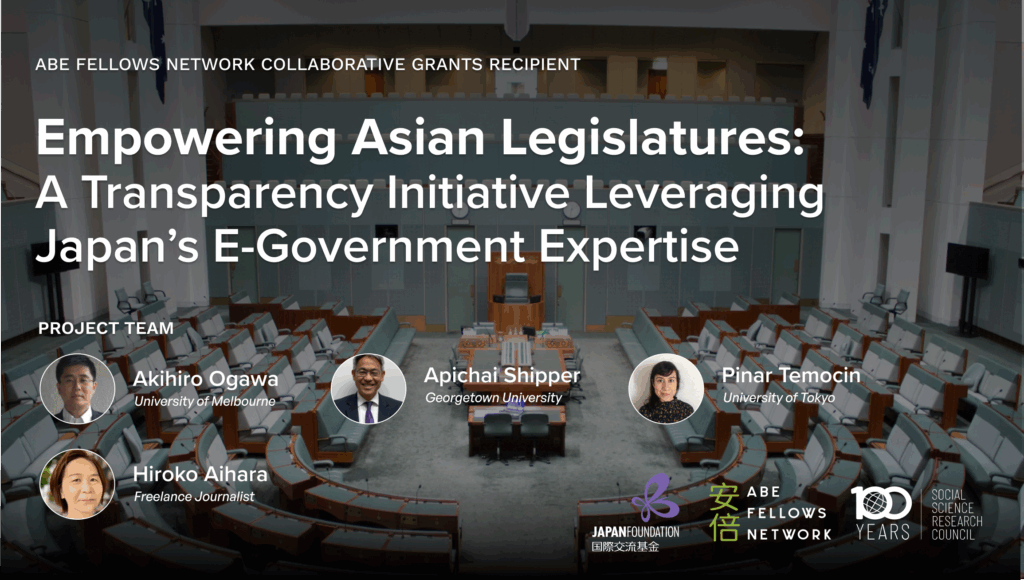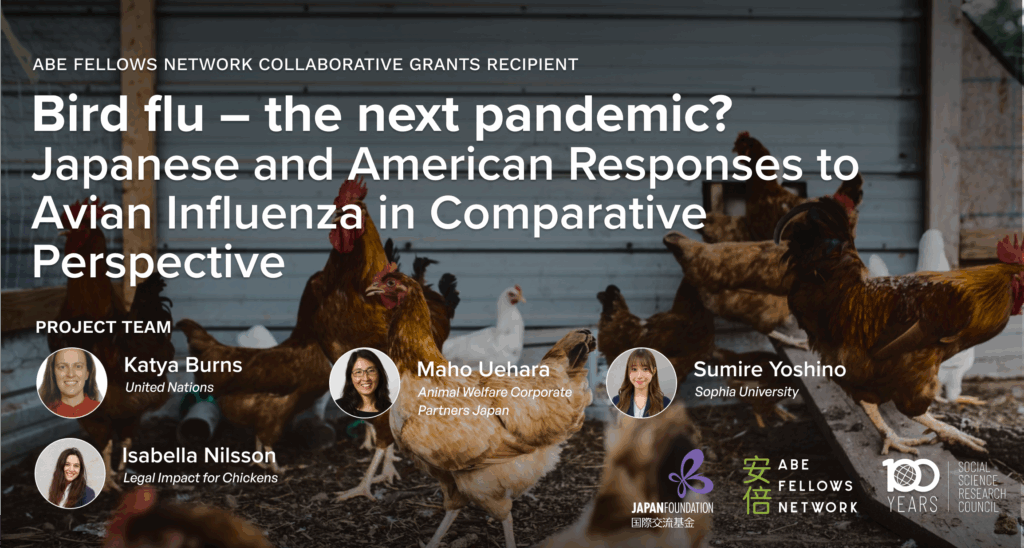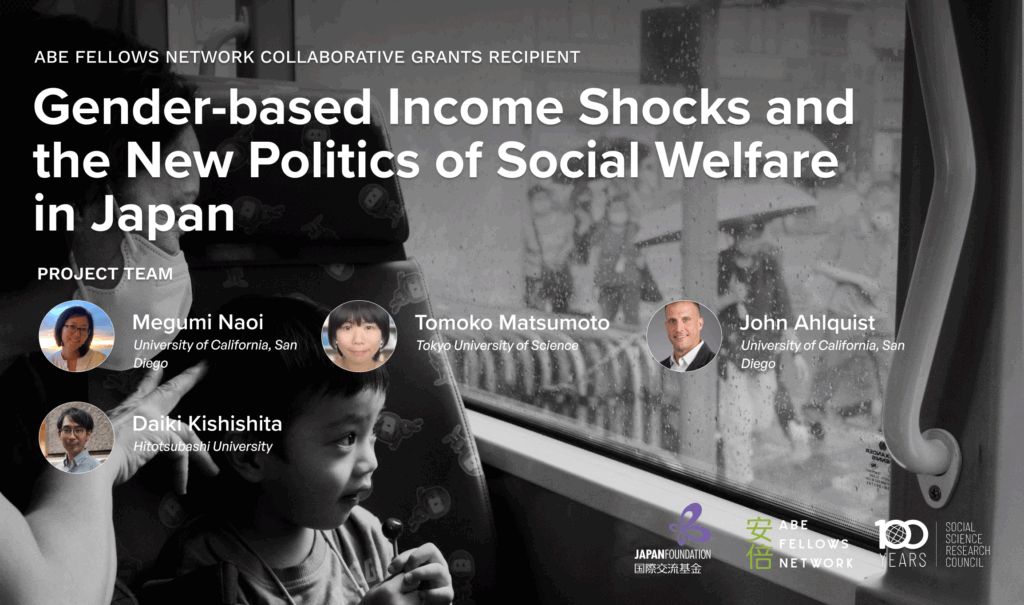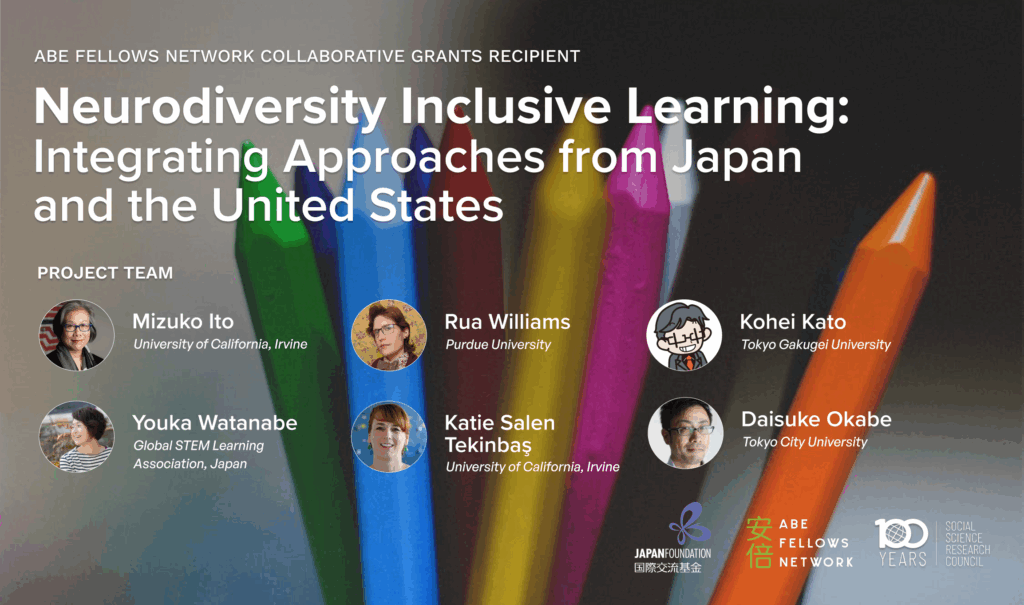The SSRC and the Japan Foundation New York have awarded new research grants to four Abe Fellows leading cross-disciplinary, cross-national research teams working on better understanding important social issues. The projects address the development of transparency in parliamentary systems, international responses to bird flu, gender-based income shocks, and neurodiversity-inclusive learning.
The Abe Fellows Network at the Social Science Research Council (SSRC), made possible through support from the Japan Foundation New York, is pleased to announce four new research grant awardees. The Abe Fellows Network builds on a more than 30-year partnership between the SSRC and the Japan Foundation to foster collaborative research between US and Japanese scholars. The initiative pairs junior and senior scholars from within and outside of the network of over 450 Abe Fellows to support new collaborative work.
The grantees’ projects span disciplines and fields. A critical initiative by the Asian Alliance for Parliamentary Openness is led by Akihiro Ogawa to develop the Asia Parliamentary Transparency Index, a pivotal tool for fostering accountability and openness within parliamentary systems across Asia facing democratic challenges. The Index will serve as a vital instrument for citizens to assess the transparency of their legislatures, ultimately empowering them to demand greater openness and responsiveness. By drawing direct lessons from Japan’s global leadership in e-participation, this initiative aims to equip Asian civil society with the knowledge and framework necessary to strengthen democratic practices across the region amidst escalating challenges to good governance.
Katya Burns, an independent scholar and consultant at the United Nations, will lead a team investigating the different ways that Japan and the United States are responding to bird flu in comparative international perspective. The team will bring together an interdisciplinary Japanese and American working group of academics, industry professionals, and animal welfare experts, in order to foster durable networks of specialists, and produce an intellectually rigorous report in English and Japanese. The report will contain recommendations on future research agendas and policies to best address avian influenza in Japan and the United States.
Megumi Naoi will lead the team investigating gender-based income shocks focusing primarily on pregnancy-related shocks and how they shape women’s support for various redistributive policies. The team of political scientists and economists in Japan and the United States, seek to answer this question with original data collection, analysis, and interviews with legislators at the national and local-levels on the demand and supply-side of the new politics of social welfare.
Globally, researchers estimate that 1 in 5 people have been clinically diagnosed with learning disabilities, and that disabled students are disengaged from school at growing rates. Education systems are adapting to be more inclusive of the needs of those with cognitive and sensory differences such as autism and ADHD, as well as related strengths such as creativity, focused interests, and analytic skills. The neurodiversity paradigm and movement argues for a holistic understanding and appreciation of how people are “differently brained,” challenging the medicalized model of disability that focuses on “fixing” individuals to conform to mainstream society and learning contexts. Mizuko Ito’s team is part of a growing number of efforts in the learning sciences and education that takes a strengths-based approach to supporting neurodiverse learners, integrating the unique strengths of U.S. and Japanese scholarship and educational practice to research and design programs and policies towards neurodiversity inclusion.
Abe Fellows Network Research Grant Awardees




